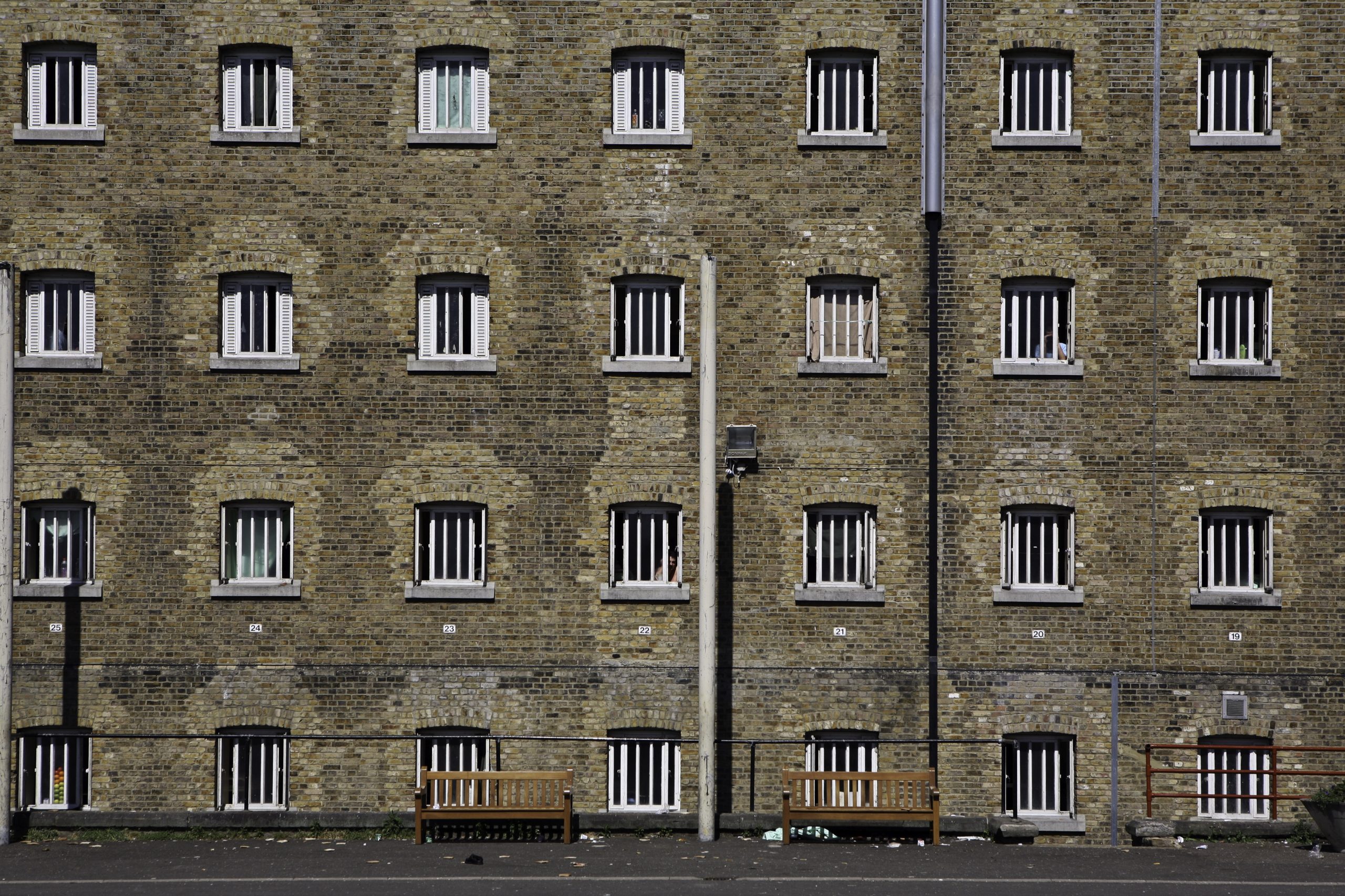Government’s ‘radical’ prison reform programme is ‘fairly minimal’, says MPs

A view of D wing at HMP Wandsworth Prison. Pic: Andy Aitchison
An influential group of MPs has called the government’s prison reform programme a ‘fairly minimal and eclectic set of measures’. The government last week dropped the Prisons and Courts Bill, which contained proposals for a radical overhaul of prisons as well as plans for online courts, to make way for the snap election.
The proposed legislation was scheduled to be debated in its committee stage when Theresa May made her surprise announcement. ‘We hope that the next Government, of whatever complexion, will attach a high priority to prison reform,’ said Bob Neill, the Conservative chair of the committee. ‘In the expectation that legislation on prisons will be brought forward early in the next Parliament, we think it is right for us to express our views in this Report on the provisions of this Bill.’ Read here for the latest MInistry of Justice statistics on violence and self-harm in prisons.
It is unusual for committees to publish reports on planned legislation during their passage through parliament, but the MPs noted that the fact that Part 1, which covers the propsals for prisons, was ‘not as extensive as might have been expected’ allowed for scrutiny. The report is an attempt by the MPs to make sure the new government does not dilute the prison reform agenda following the June 8 poll.
Bob Neill, noting that ‘much’ of the reform agenda was being taken forward by ‘non-legislative means’, said that the Bill was less wide-ranging than expected. Over the past few months, the government has confirmed a series of plans to devolve responsibilities to governors. Non-legislative measures include the estate modernisation programme and a recent white paper that considered new strategies on a range of issues including education, employment, young adult offenders, drugs in prison, and staff corruption. A review of prison rules is also taking place.
The justice committee welcomed proposals for a statutory purpose for prisons focusing on the need to protect the public, rehabilitate offenders and maintain a safe and secure environment but with a significant caveat. Agreeing that the establishment of a statutory purpose would ‘provide a unifying ethos’ for the system, the MPs argued that the Bill would be ‘considerably strengthened by the inclusion of the need to aim to achieve a decent and fair environment for prisoners’.
The committee recommended that performance measurement indicators ‘explicitly’ take account of the extent to which prisons were meeting ‘their obligations to ensure prisoners are treated decently, fairly and humanely’. Such indicators would not just be quantitative but also qualitative, aiming to capture the extent to which prisoners might ‘perceive that they are being treated, or may actually experience treatment’.
MPs were positive about the proposals mandating the secretary of state to have to respond to recommendations from the chief inspector of prisons within 90 days. In the case of an urgent notification, a response would be expected within 28 days. The committee suggested that the requirement to respond be devolved to governors in certain cases. Rather than the secretary of state, the report argued that ‘the governor or director of the relevant establishment’ would be best placed to deal with ‘recommendations on immediate operational matters’. ‘That would appear to chime with the devolutionary ambitions of much of the Government’s prison reform agenda,’ it added.
On the topic of the committee’s own role in appointing the chief inspector, the MPs supported the idea of a veto on the government’s choice. The previous committee had wanted to assume the task of overseeing the appointment but the new committee argued that a veto would represent enough of ‘a backstop guarantee of that person’s independence from potential ministerial patronage or pressure.’
The MPs also backed the Bill’s plans for a statutory foundation for the Prisons and Probation Ombudsman. ‘[T]his is something the current PPO has been advocating for some time and it would give greater legitimacy and authority to his office,’ Bob Neill said. The report itself supported the idea that the PPO would both carry out investigations at the request of the secretary of state and on its own initiative.
Nigel Newcomen, the current PPO, welcomed the Bill’s attempt to rectify the ‘quite astounding’ circumstances that previously rendered the ombudsman ‘dependent on the goodwill of those whom it is investigating for access to places, people and documents.’
Calling for additional measures to ensure adequate oversight of prisons, the MPs called for plans to place the UK’s national preventive mechanism on a ‘definitive statutory basis’. The scheme, co-ordinated by the prisons Inspectorate, is a 21-strong group of organisations that visit places of detention throughout the UK.
The MPs were not persuaded by the government’s proposal to change the secretary of state’s role from one of superintendence to accountability. Declaring that it would not be ‘possible to reach a view on whether [the change] will make the running of the prison system more effective’, the report cited debates in the Public Bill Committee that were unclear on the practical implications of such a semantic shift.







